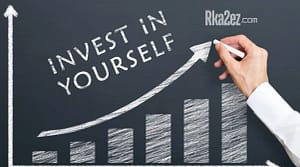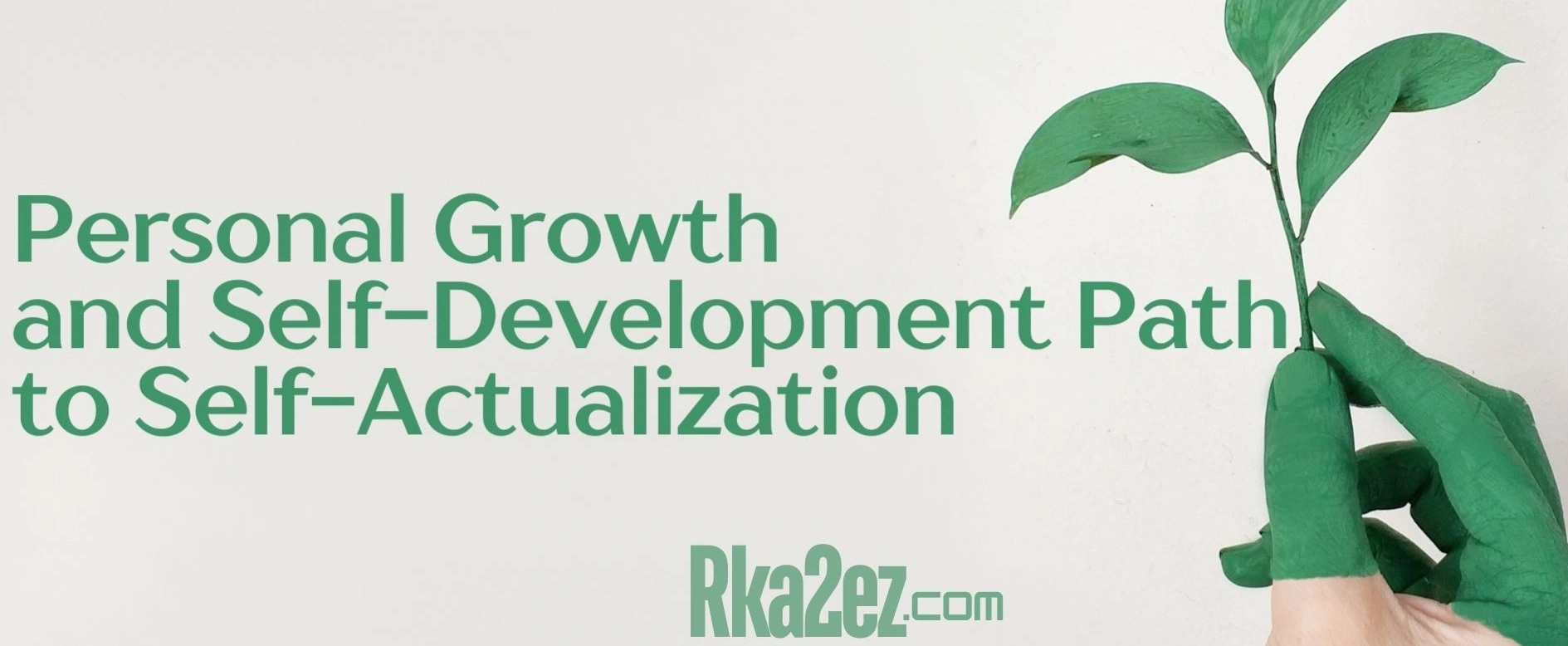Explore the journey of personal growth and self-development, unlocking the path to self-actualization through conscious improvement and lifelong learning
Personal Growth and Self-Development: A Path to Self-Actualization
In life, we all embark on a unique journey shaped by our abilities, desires, and circumstances. Personal growth and self-development form the cornerstones of this journey, where individuals strive to realize their potential and achieve self-actualization. This quest for self-improvement requires constant reflection, learning, and adaptation. As we face life’s challenges, our ability to grow and develop determines the quality of our lives. Let’s explore the significance of personal growth and self-development and how they lead us to a fulfilling life of self-actualization.
Personal Growth: What Does It Mean?
Personal growth refers to the process of enhancing specific qualities, skills, and attributes to become the best version of oneself. It’s a conscious and deliberate effort to identify areas for improvement and work towards realizing one’s full potential. Often associated with self-improvement, personal growth is not a destination but a continuous journey of learning and evolving.
At its core, personal growth is about more than achieving specific goals or mastering a particular skill. It’s about fostering a mindset that embraces change, seeks knowledge, and adapts to the complexities of life. This growth often involves stepping out of comfort zones, confronting fears, and setting higher standards for oneself. By prioritizing personal growth, individuals can navigate life’s uncertainties with resilience and purpose.

Self-Development: The Continuous Process
Self-development is an independent, ongoing process that requires introspection, self-awareness, and self-improvement strategies. Unlike external influences, self-development is deeply personal and reflects an individual’s desire to elevate their life experience. It encourages the cultivation of personal strengths while addressing weaknesses. This internal work forms the foundation for long-term success and personal fulfillment.
By engaging in self-development, individuals develop a realistic sense of self, fostering self-confidence and a greater understanding of their purpose. Regularly assessing personal goals and aligning them with one’s values allows for continual progress. This process is essential for adapting to life’s inevitable challenges and achieving sustained personal growth.
The Interconnectedness of Personal Growth and Self-Development
While personal growth and self-development are often discussed separately, they are, in reality, deeply interconnected. Both focus on the improvement of an individual but from different perspectives. Personal growth typically involves the broader aspects of evolving as a person, while self-development centers around specific actions taken to foster this growth.
When individuals prioritize both self-development and personal growth, they experience a harmonious balance between ambition and contentment. The journey to self-actualization is fueled by the desire to reach one’s highest potential through a commitment to lifelong learning and personal evolution.
Factors That Drive Personal Growth
Several factors contribute to an individual’s personal growth, and understanding these can provide insights into how to foster continuous development.
- Dissatisfaction with the current situation: When individuals feel unfulfilled, they are often motivated to pursue growth and change. This dissatisfaction serves as a catalyst for identifying areas for improvement.
- Clear goal-setting: Establishing clear and defined goals provides direction and purpose. Goal-setting helps individuals focus their energy on tangible outcomes, ensuring that their efforts align with their long-term aspirations.
- Challenging circumstances: Difficult situations often push individuals to develop new skills and qualities. Adversity serves as a learning ground where personal growth flourishes.
- Taking responsibility: Accepting personal accountability for decisions and actions is a key driver of personal growth. Responsibility fosters empowerment and encourages individuals to take control of their development.
By understanding these drivers, individuals can make conscious efforts to promote personal growth in their everyday lives.
Check out these articles : A Deep Dive into Mindfulness Meditation Practices
Theories of Personal Growth
Personal growth has been the subject of various psychological theories. Each theory offers different perspectives on how individuals evolve and the factors that contribute to their development.
Behaviorism Theory
The behaviorism theory suggests that all individuals have equal potential at birth, and it is their environment that shapes them. According to this view, personal growth is heavily influenced by external stimuli, such as life experiences, education, and social interactions. Behaviorism dismisses the concept of innate talents or uniqueness, emphasizing that development is a learned process.
Existentialism Theory
In contrast, existentialism emphasizes the importance of self-awareness in personal growth. This theory asserts that individuals can only achieve true growth once they gain deep insight into themselves. Existentialism places a strong emphasis on self-knowledge as the key to unlocking personal evolution. According to this theory, personal transformation occurs when individuals achieve internal harmony and self-awareness.
Theory of “Inevitable Positivity”
One of the most popular modern theories on personal growth is the “inevitable positivity” theory. This perspective argues that every person has boundless potential that can be unlocked under the right conditions. The theory suggests that both positive and negative life events contribute to personal growth, as all experiences offer opportunities for learning and self-improvement. It holds that growth occurs naturally, often through overcoming adversity.
Evaluating Personal Growth: Internal and External Criteria
Personal growth can be measured using both internal and external criteria. Internal criteria focus on self-awareness, self-acceptance, and personal responsibility. External criteria, on the other hand, relate to how well an individual interacts with others and navigates life’s challenges.
Internal Criteria:
- Self-awareness
- Self-acceptance
- Openness to new experiences
- Flexibility and adaptability
External Criteria:
- Communication skills
- Problem-solving abilities
- Understanding others
By evaluating both internal and external criteria, individuals can gain a comprehensive understanding of their progress and identify areas for further development.
Subjective and Objective Indicators of Personal Development
Personal growth can be assessed through subjective and objective indicators. Subjective indicators are often influenced by personal values, life experiences, and individual personality traits. For example, one person might value career success, while another may prioritize emotional well-being.
Objective indicators of personal development include the ability to make confident decisions, take initiative, and maintain internal control. These tangible signs reflect the positive impact of personal growth on an individual’s life.
Signs of Stagnation in Personal Growth
Even though personal growth is an ongoing process, there are times when individuals may experience stagnation. Signs of stagnation include self-rejection, internal discomfort, resistance to learning, and an excessive focus on external achievements. When personal growth stalls, individuals may feel disconnected, unfulfilled, or lacking direction.
Recognizing these signs is essential for reigniting the drive for growth and breaking free from stagnation.
Techniques for Enhancing Personal Growth
Advancements in psychology have introduced various techniques to help individuals overcome stagnation and actively engage in personal growth. Some of these techniques include:
- Affirmations: Repeating positive statements to influence thought patterns and behaviors.
- Visualization: Imagining successful outcomes to inspire positive changes.
- Goal-setting: Creating actionable steps to achieve personal aspirations.
- Body-oriented methods: Techniques such as mindfulness, yoga, or tai chi that connect physical and emotional well-being.
These methods can accelerate personal growth by fostering a mindset of optimism, determination, and resilience.
Tools for Personal Growth
In addition to techniques, there are several tools individuals can use to support their personal growth journey. These tools include:
- Journaling: Writing down thoughts and reflections to track progress.
- Idea storage: Keeping a record of spontaneous ideas for future development.
- Positive thinking: Cultivating optimism and resilience in the face of challenges.
- Self-love: Prioritizing self-care and developing a healthy relationship with oneself.
By consistently using these tools, individuals can monitor their progress and stay committed to their personal growth goals.
Ways to Pursue Self-Development
There are numerous ways to engage in self-development, from self-directed learning to one-on-one coaching. Some effective approaches include:
- Self-directed learning: Reading books, attending webinars, and applying knowledge independently.
- Attending seminars: Group workshops and seminars can provide valuable insights and motivation.
- Coaching: Personal growth coaches can offer tailored strategies and guidance to address specific challenges.
By embracing these methods, individuals can tailor their personal growth journey to suit their needs and aspirations.
Final Thoughts
Personal growth and self-development are deeply personal yet universal experiences that shape our lives. They require continuous effort, reflection, and adaptability. By embracing these processes, individuals can realize their potential, overcome challenges, and ultimately achieve self-actualization. In a world full of uncertainty, personal growth remains a constant source of empowerment and fulfillment. The journey is long, but the rewards are profound, leading to a life of purpose, contentment, and inner harmony.
Frequently Asked Queries
What is the difference between personal growth and self-development?
Personal growth refers to the overall process of becoming the best version of oneself, while self-development focuses on the specific actions taken to achieve that growth.
How can I identify signs of stagnation in my personal growth?
Common signs of stagnation include self-rejection, internal discomfort, and resistance to change. Recognizing these signs is crucial for overcoming stagnation and reigniting personal growth.
What are some effective tools for personal growth?
Journaling, goal-setting, and positive thinking are powerful tools that can support personal growth. These practices help individuals stay focused, track progress, and maintain a positive mindset.
How can challenging circumstances contribute to personal growth?
Difficult situations push individuals to develop new qualities and skills. Adversity often serves as a catalyst for growth, teaching resilience, adaptability, and problem




